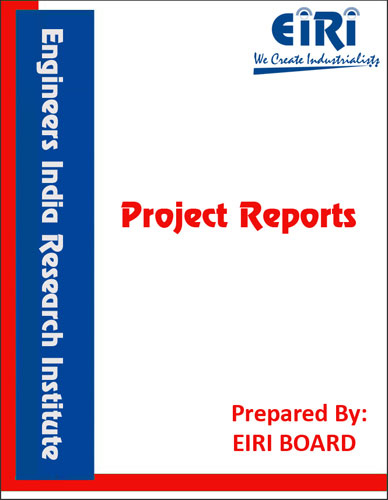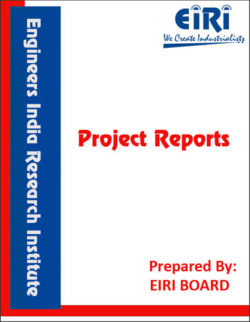LUBE OIL BLENDING WITH GREASES
The project report includes Present Market Position and Expected Future Demand, Market Size, Statistics, Trends, SWOT Analysis and Forecasts. Report provides a comprehensive analysis from industry covering detailed reporting and evaluates the position of the industry by providing insights to the SWOT analysis of the industry.
We can prepare PROJECT REPORT as per your INVESTMENT PLAN for BANK LOAN REQUIREMENT and INDUSTRY ANALYSIS. All reports are prepared by highly qualified consultants and verified by a panel of experts.
Have Query? Click Here to Chat
Industry Expert is Online, Chat with him for more detail.

Lube oils generally include all classes of lubricating materials that are applied as fuels. India’s growing economy and emerging middle class continue to contribute to a robust automotive market growth as Lube oil and Greases business depends upon the growth of automobile sector.. As a result, India is now the world’s 3rd largest lubricants market, behind only America and China, with a market size of 3 billion litres. Lubricants (Oils and greases and others) demand is projected to grow at a 2.7% annually. Of that, the automotive lubricants market is 55%, and growing at 6.5% annually. All of the world’s lube oils are made from the crude oil which remain after removal of gas oil and lighter fractions by distillation. In order to minimize variations and produce products that provide consistent performance in specific applications, four steps are followed in the manufacture of finished lubricating oils from the various available crudes. The leading brands in Lubricant sectors are IOC (Servo brand), Bharat Petroleum Corporation (MAK) and Hindustan Petroleum Corporation (Turbo). These brands have got over 50% market share. The rest is with private and multinationals, including Shell, Gulf Oil, Castrol, Exxon Mobil, Total, IPOL and smaller companies. Selection and aggregating of crudes according to the principal types of hydrocarbon present; distillation of the crude to separate it into fractions containing hydrocarbons in the same sp range; processing to remove undesirable constituents from the various fractions or to convert same of these materials constituents from the various fractions or to convert same of these materials to more desirable materials, and blending to attain the physical characteristics that are required in the finished products and incorporating chemical agents to improve performance. EIRI have prepared the project report to set-up this plant for new entrepreneurs who want to enter into this trade as manufacturers.
Each ‘EIRI’ MARKET OVERVIEW CUM DETAILED TECHNO ECONOMIC FEASIBILITY REPORT (Complete Report) tentatively covers
• Introduction
• Properties
• BIS (Bureau of Indian Standard) Specifications & Requirements
• Uses & Applications
• Present Indian Market Overview/Position
• Export & Import Statistics Data
• Names and Addresses of Existing Units (Present Manufactures)
• List of Plant & Machineries
• Miscellaneous Items and Accessories
• Instruments, Laboratory Equipments and Accessories
• Electrification, Electric Load and Water
• Maintenance, Suppliers/Manufacturers of Plant and Machineries
• Manufacturing Process with Formulations (If applicable)
• Flow Sheet Diagram
• List of Raw Materials
• Availability of Raw Materials
• Requirement of Staff & Labour
• Personnel Management
• Skilled & Unskilled Labour
• Requirement of Land Area
• Built up Area
• Plant Layout
Along with financial details as under:
• Summary of Capital Cost of Project
• Land & Side Development Exp.
• Buildings
• Plant & Machineries
• Misc. Fixed Assets
• Technical Know how Fees & Exp.
• Preliminary Expenses
• Pre-operative Expenses
• Provision for Contingencies
Below mentioned financial statements (Annexure) will be for 5 to 10 Years
• Annexure:: Cost of Project and Means of Finance
• Annexure:: Output, Profitability and Cash Flow Chart
• Annexure:: Assessment of Working Capital requirements
• Annexure:: Sources of Finance
• Annexure:: Balance Sheets
• Annexure:: Break-Even Analysis and profitability analysis.
• Annexure:: Quantitative Details-Output/Sales/Stocks
• Annexure:: Sales Realisation
• Annexure:: Raw Material Cost
• Annexure:: Other Raw Material Cost
• Annexure:: Packing Material Cost
• Annexure:: Consumables, Store etc.,
• Annexure:: Employees Expenses
• Annexure:: Fuel Expenses
• Annexure:: Power/Electricity Expenses
• Annexure:: Repairs & Maintenance Exp.
• Annexure:: Other Mfg. Expenses
• Annexure:: Administration Expenses
• Annexure:: Selling Expenses
• Annexure:: Depreciation Charges – Profitability
• Annexure:: Depreciation Charges
• Annexure:: Interest and Repayment – Term Loans
• Annexure:: Tax on Profit
• Annexure:: Assumptions for Profitability workings
• Annexure:: Assessment of Working Capital



